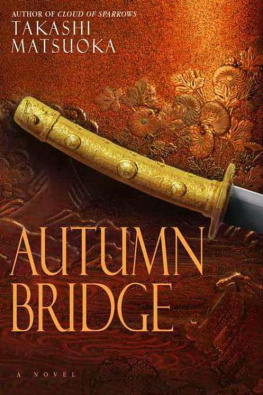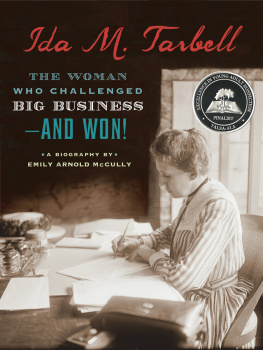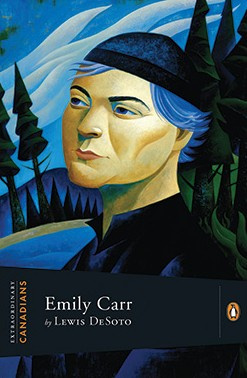E mily Gibson's yearning was so great, she awoke every morning to the scent of apple blossoms borne on the wind. It was no longer the memory of the Apple Valley of her childhood that caused the painful emptiness in her breast, nor did the imaginary wind bear that lost fragrance from an orchard on the banks of the Hudson River. She missed the other Apple Valley, the dell that sheltered barely a hundred trees a little more than an arrow's flight from Cloud of Sparrows Castle.
That she was able to feel nostalgic about a place in Japan was indicative of how long she had been away from America. It had been more than six years since she had left, and almost as long since she had last thought of it as home. She had been sixteen then. She was twenty-three now, and felt much older. In the years between, she had lost her fianc, her best friend, and, perhaps most significantly, her sense of propriety. Knowing what was right and doing what was right were two very different things. Emotions were not as easily controlled as logic would dictate. She was in love, and she should not have been.
Emily rose from her bed, a canopied four-poster in what Robert Farrington, the American embassy's naval attach, assured her was the latest style in the United States. It was on his advice that she had ordered it. Her discomfiture with discussing such an intimate article of furniture with a man not related to her was overcome by necessity. There was no one else to advise her on such matters. The wives and daughters of the few Americans in Edo avoided her company. This time, it was not because of her beauty, or, more accurately, not primarily because of it, but because of her excessively close association with an Oriental, which, Lieutenant Farrington told her, was something of a scandal in Western ambassadorial circles.
"What is there to be scandalized about?" Emily had asked. "I am a Christian missionary doing Christ's work under the protection of Lord Genji. There is nothing improper in the slightest about our relationship."
"That is one way to look at it."
"I beg your pardon, Lieutenant Farrington," Emily said, her shoulders stiffening. "I fail to see any other way."
"Please. We have agreed, have we not, that you will be Emily and I will be Robert. Lieutenant Farrington sounds so distant and, well, military."
They were in the drawing room overlooking one of the inner courtyards of Quiet Crane Palace. It had been converted to the Western style, at first to accommodate Emily, and more recently to receive Western guests.
"Is that wise, sir? Would I not expose myself to further scandal?"
"I do not give an iota of credence to the rumors," he said, "but you must admit the circumstances make such conjecture inevitable."
"What circumstances?"
"Do you not see?" Robert's handsome face squinched up in that boyish way he had of unconsciously showing anxiety.
She wanted to laugh, but of course she did not. While it was something of a struggle to maintain her serious expression, she managed to do so.
She said, "No, I do not see."
Robert stood and went to the doorway overlooking the garden. He walked with the slightest of limps. He had dismissed it as the result of an accident during the war. The ambassador, however, had told her that Robert had received the wound during naval actions on the Mississippi River, actions for which he had been awarded numerous commendations for valor. She found Robert's modesty endearing. Indeed, she found many things about him endearing, not the least of which was his ability to speak English. That was perhaps what Emily had missed most during these long years in Japan--the sound of an American voice.
Once at the doorway, Robert turned to face her. Apparently, he felt the need to stand at some remove in order to say what he had to say. His face still displayed a squinch. "You are a young unmarried woman, without the protection of father, husband, or brother, living in the palace of an Oriental despot."
"I would hardly call Lord Genji a despot, Robert. He is a nobleman, rather like a duke in European countries."
"Please. Let me continue while I have the courage to do so. As I was saying, you are a young woman, and, moreover, a very beautiful young woman. That alone would be enough to ignite gossip in any circumstance. To make matters worse, the duke,' as you style him, whose roof you share--"
Emily said, "I would not phrase it that way."
"--is one notorious for debauchery even among his own debauched peers. For God's sake, Emily--"
"I must ask you not to use the Lord's name in vain."
"Excuse me," he said, "I forgot myself. But surely, you can see the problem now."
"And is that how you see it?"
"I know you are a woman of impeccable virtue and utterly steadfast morality. My concern is not with your behavior. Rather, I fear for your safety in such a place. It borders on the miraculous that you have remained here unmolested for so long. Isolated this way, at the mercy of a man whose every whim is an ironclad command to his fanatic followers, anything could happen, anything, and no one could help you."
Emily smiled kindly. "I appreciate your concern. But really, your fear is entirely without foundation. Your generous characterization of my appearance is not shared by the Japanese. I am considered quite hideous, not unlike the demons that periodically appear in their fairy tales, breathing fire. No person is less likely to excite ungovernable passions in the Japanese than I, I assure you."
"It is not the generality of Japanese that concerns me," Robert said, "just one person in particular."
"Lord Genji is a true friend," Emily said, "and a gentleman who conforms to the highest standards of decency. I am safer within these walls than I would be anywhere else in Edo."
"The highest standards of decency? He consorts with prostitutes on a regular basis."
"Geisha are not prostitutes. I've explained that to you many times. You willfully refuse to understand."
"He worships golden idols."
"He does not. He expresses reverence for his teachers and ancestors by bowing to the images of Buddhas. I've explained this also."
Robert went on as if he hadn't heard her. "He has murdered dozens of innocent men, women, and children, and caused many others to be killed. He has not only condoned suicide, which is sin enough, but he has actually ordered others to commit the act. He has decapitated, or caused to be decapitated, more than a few of his political enemies, and has compounded those atrocities by actually delivering the severed heads of those unfortunates to their families and loved ones. Such cruelty is beyond belief. My God, do you call this conforming to the highest standards of decency?"
"Calm yourself. Here. Have some tea." Emily needed the pause. All of the issues he had raised were easily answerable, if not completely defensible, save one. The murder of the villagers. Perhaps if she left that aside and addressed the other issues, he would not notice.
Robert seated himself. He was breathing rather heavily, overexcited as he had been by his recitation of Genji's sins.
"I beg your pardon," he said, "but is coffee available by any chance?"
"I'm afraid not. Do you really prefer it to tea?" Coffee was apparently one of the more recent postwar fads in the United States. "I find it rather acidic, and it tends to upset my stomach."
"It's an aquired taste, I suppose. During the war, when Brazilian coffee was more readily available than English tea, I found coffee to have one great advantage. It supplies a tremendous burst of energy completely lacking in tea."
"You seem, if anything, to have an excess of energy rather than a dearth," Emily said. "Perhaps you should reduce your coffee consumption in any case."
Robert took the offered tea and smiled. "Perhaps," he said, and continued to smile at her in such a way that she knew she could lead the conversation in another direction with little effort. That direction, which Robert had attempted in several previous conversations, had dangers of its own, however, so Emily stayed with the subject at hand.










